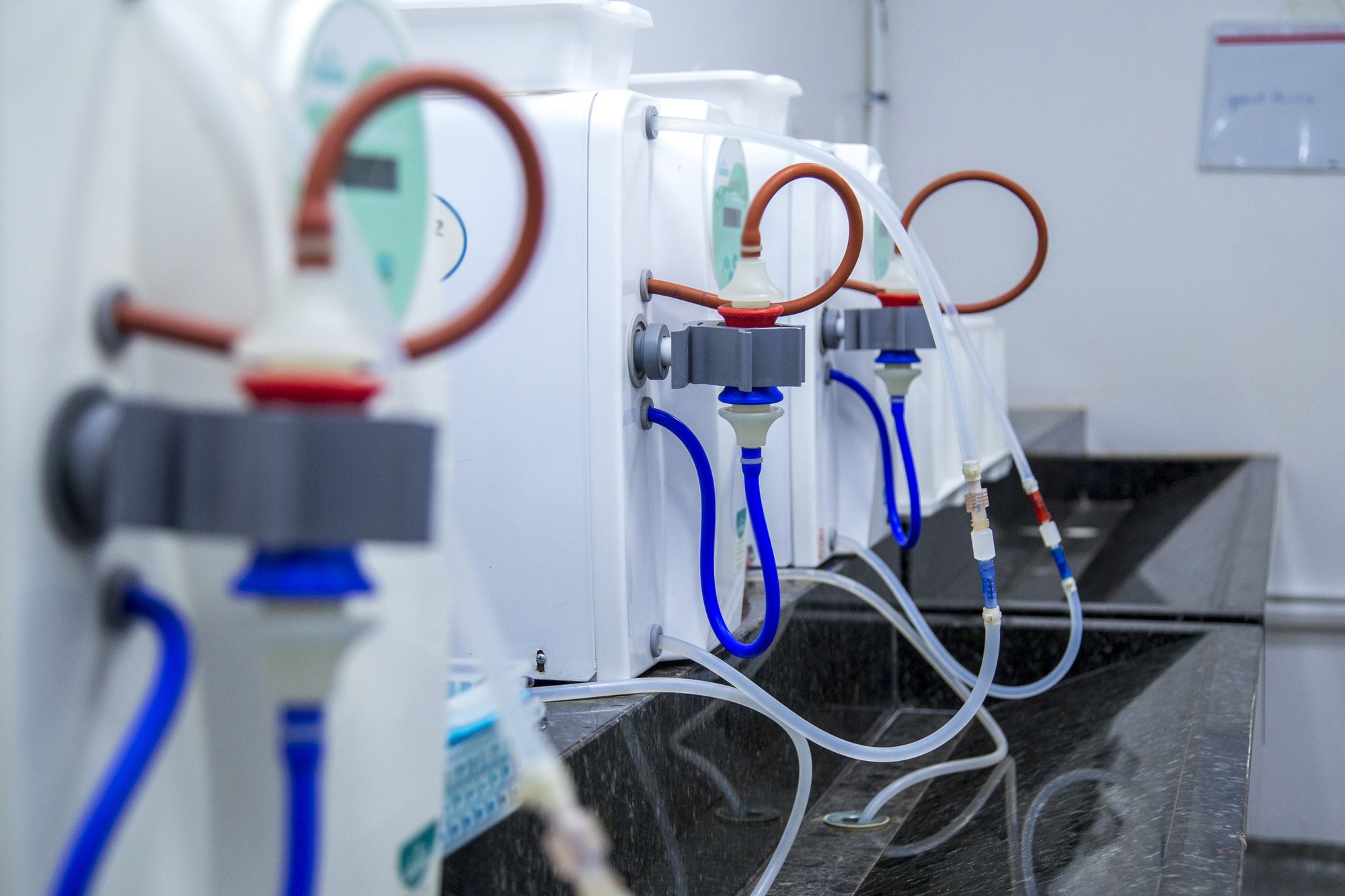
Dialysis Water
Dialysis Water Filtration Solutions
The water used for dialysis treatment must adhere to stringent standards of purification. Our dialysis filters assist in preparing water for bicarbonate concentrate to meet the requirements for the hemodialysis quality water per ANSI/AAMI/ISO 23500-5:2019 standard.
The 5 nanometer (0.005 micron) pore size of our dialysis water filters enables the retention of bacteria, viruses, and endotoxins through size exclusion, assisting in providing dialysis quality water for treatment. Nephros DSU-D, SSU-D, SSUmini, and EndoPur dialysis filters are all FDA 510(k)-cleared as Class II medical devices and comply with the highest regulatory standards for product performance and accountability.
Importance of Water Purity for Dialysis?
Dialysis patients are typically exposed to 300 – 600 liters of water per week during treatment, meaning water is a critical input and must be free from contaminants to prevent risks of waterborne illness.
In healthy bodies, the gut and liver are responsible for the processing and removal of contaminants from water and other fluids before being absorbed into the blood. During dialysis treatment, water comes into direct contact with the patient’s blood across the dialyzer membrane rather than first passing through the gut and liver. This direct contact is precisely why dialysis water requires the highest possible purity to ensure patient safety.
Risks of Dialysis Water Contaminations
Incoming water may contain a variety of contaminants that are toxic to dialysis patients. If the contaminants are not removed, exposure can cause significant health issues. it is critical for positive patient outcomes that the water used for dialysis meets AAMI standards.
Endotoxin exposure is especially serious, and capable of causing fever, septic shock, organ failure, or death. Bacteria is similarly harmful, potentially leading to chronic inflammation, blood poisoning, and a variety of heightened immune responses. Chloramines, though not a biological contaminant, are also toxic, even fatal. Death is a potential result of chloramine-induced hemolytic anemia, kidney failure, fever, or hypotension.
The Process of Filtering Dialysis Water
When preparing water for dialysis treatment, pre-treated water is pumped through a filter. Our 5 nanometer (0.005 micron) dialysis water filters halt the passage of biological contaminants, such as bacteria, viruses, and endotoxins, to the patient. The product water enters the hemodialysis machine and is then used to prepare the dialysate for dialysis treatment. The reject water, contaminated with unwanted bacteria, is discarded.
Water Filtration for Portable RO/DI Equipment
Portable dialysis equipment must provide high-quality water when and where patients need it most. Nephros DSU-D, SSU-D, and SSUmini dialysis filters are all FDA-cleared as Class II medical devices and capable of retaining microbiological contaminants, such as bacteria, viruses, and endotoxins. Additionally, these model types represent three different size configurations to support a range of in-line installations upstream of machines. Each solution effectively integrates into the overall water loop and contributes to the preparation of dialysate that meets AAMI requirements.
Water Filtration for Central Water Systems
Dialysis providers understand the need for high-purity water in acute settings and chronic treatment centers. The Nephros DSU-D, and EndoPur dialysis filters offer high-volume filtration in water rooms, enabling treatment centers to confidently deliver the best quality water to dialysis patients. These model types are each FDA-cleared as Class II medical devices for retention of bacteria, viruses, and endotoxins.
Want to learn more?
Contact us for product details and additional information
Want to know more?
Reach out for quotes, additional product details, installation questions, and more.

